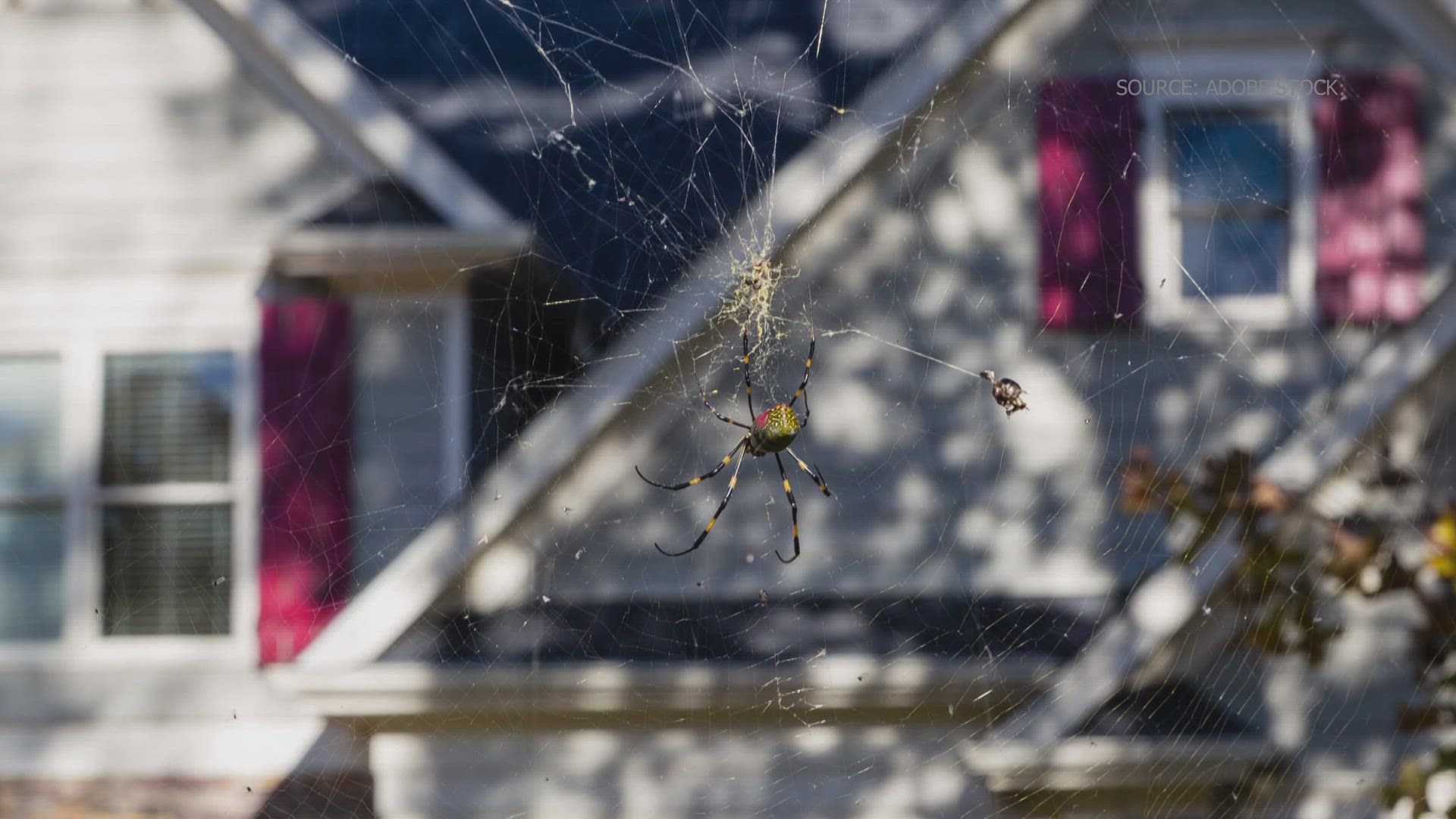GUILFORD COUNTY, N.C. — You might want to keep an eye out for these creepy crawlers.
The massive spiders are spreading to new states including North Carolina.
In fact, they've been spotted in one part of the Triad near Lexington, according to a map locator by the University of Georgia.
If you think you are safe in the city from these spiders, think again. Your backyard might be free from these spiders but not for long.
The University of Georgia released a study that said these spiders do well in urban areas.
A study shows that these spiders can live next to busy roads, which are typically stressful environments for many animals.
Taylor Jones is a consumer horticulture extension agent in Guilford County.
Jones said he has not seen any reports of Joro spiders in the Triad, but it will happen eventually.
"It's not a matter of if but when we'll start to see the Joro spider," said Jones. "There have been a few localized reports in western North Carolina of the Joro Spider, but we have not seen or heard of any reports here in Guilford County or even the Piedmont. They are coming, but we don't know exactly if they're here yet or when they might appear."
Jones said in 2013, Joro spiders made their way into Georgia
Since then, the species expanded into western North Carolina and is expected to move into the entire state soon.
"They're large spiders and they can move pretty regularly to large areas," said Jones. "The one thing that folks have sort of been talking about is these spiders falling from the sky, but basically what that is, it's the juveniles in the spring once they hatch. The juvenile spiders will actually sort of silk down on a web and take the flight basically on their web to move to other areas, so that's how they sort of are moving and they really are sort of a resistant spider to a lot of different ecological pressures."
In the spring, up to 1500 baby Joro spiders hatch. Those baby spiders release several threads of silk, travel with the wind, and can be carried hundreds of miles away depending on the wind.
Jones said he is familiar with the study put out by the University of Georgia and said they can handle the big cities well.
"With the urban landscapes, there's a lot more vibrations, a lot more busyness that's happening, but they are able to differentiate that and actually capitalize on that with the levels of potential pests that are in urban areas," said Jones.
While the spiders are not in Guilford County yet, he said it will happen.
Don't fear though, Jones said these spiders are not dangerous.
"They are venomous in how they capture their prey, but their mouthparts are so small that a human bite is going to not be of concern," said Jones. "The venom level is compared to that of a honey bee sting and so really it's not going to be sort of something that we have to watch out for.
Jones said the spider eats insects in your garden and trees, like mosquitoes, stink bugs, and biting flies.
"It's sort of one of those things that we have to learn to sort of live with, but yeah, just think about it as another spider, another beneficial critter in the garden that's going to help get rid of the bad insects," he said.
Jones said his recommendation is to just leave them alone.
"At the end of the day, they are eating the pest insects that are going to be in our gardens and on our trees and things like that and so really spiders are sort of underrated when it comes to horticulture and gardening because they provide a wealth of benefit because they do eat some of those potential pests that come in our garden," said Jones.
The spider's web can get up to 10 feet wide and they can grow to be as large as your hand.
If you do see one, be sure to call the extension office. Staff will identify any spider that you come across.

